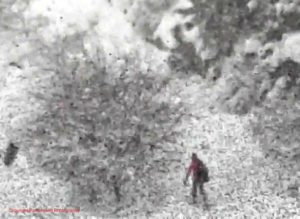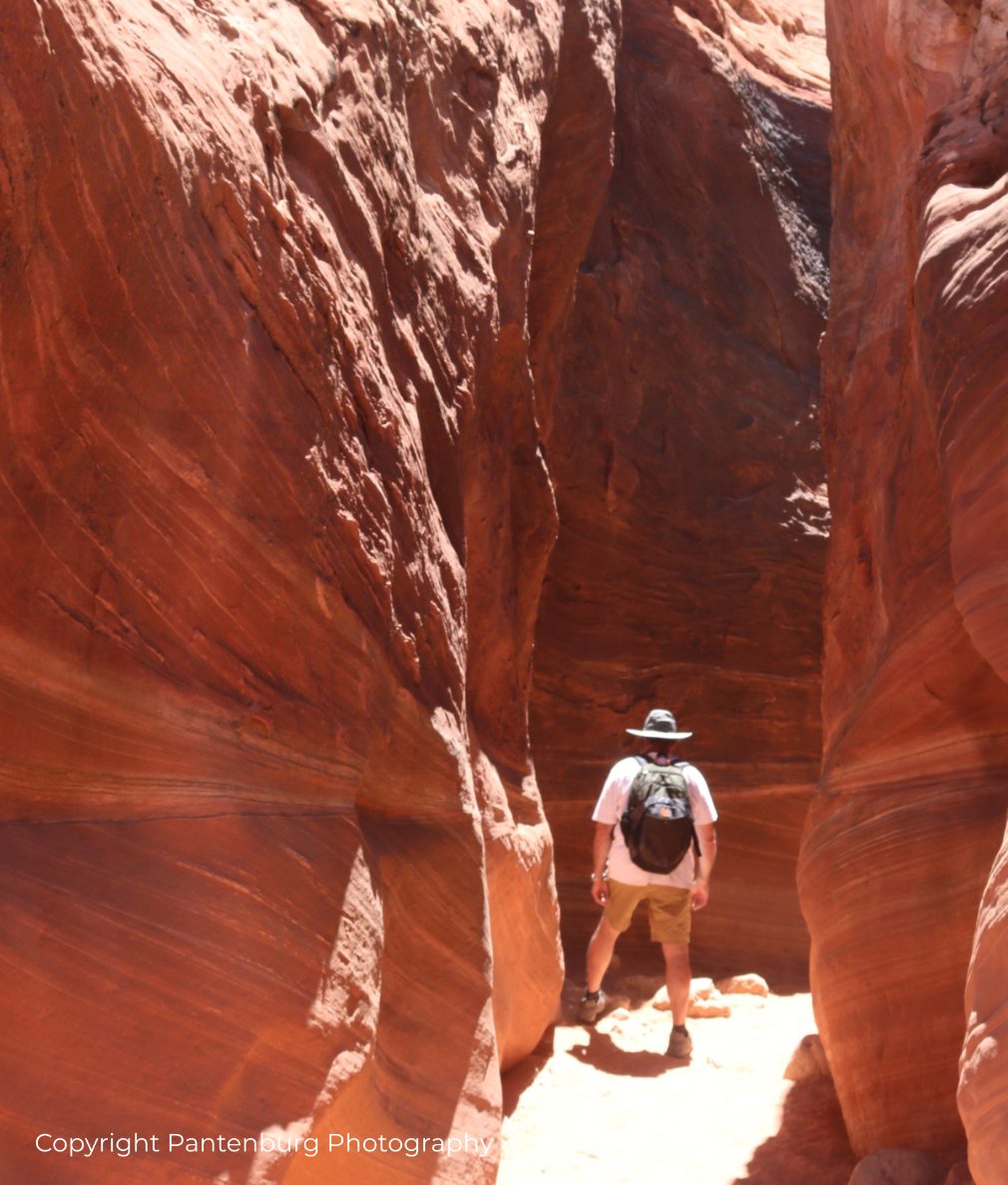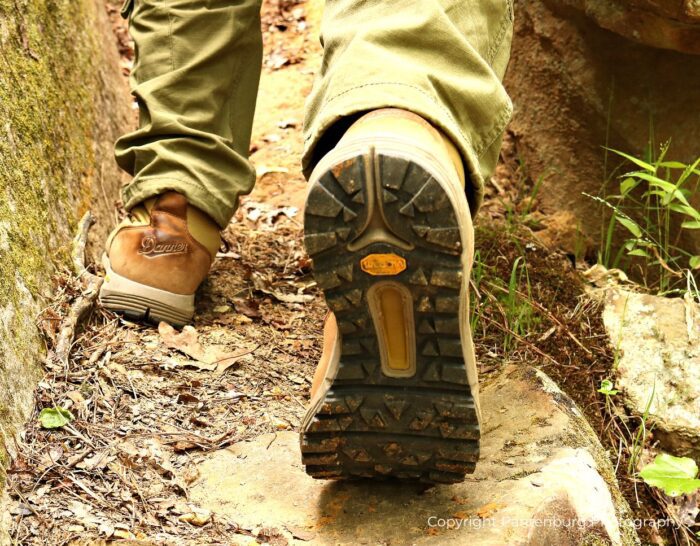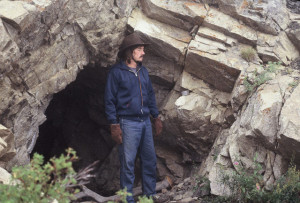Every lost or missing hiker is unique, but there are common mistakes most of them make.
In no particular order of importance, here are ten. (These are from Search and Rescue incidents or personal experience.)
by Leon Pantenburg
This story comes from a member of the Deschutes County (Oregon) Search and Rescue team:

Mother Nature is not a benevolent entity.
The searchers had been out all night looking for a lost hiker. They regrouped at a trail head to plan their next move. It was getting colder, and the snow was starting to spit and swirl. A group of hikers was unloading and preparing to head out.
“They were very lightly-dressed, wearing cotton and a couple wore hiking sandals,” the SAR volunteer mentioned. “We looked at them in disbelief. We wondered if this group would be our next search and rescue mission.”
Here are some common mistakes hikers and backpackers make that can end up becoming deadly.
Welcome to Disneyland! Actually, this refers to underestimating the environment. Newcomers to the wild may not have any practical experience whatsoever, and all they know comes from unrealistic outdoor movies, books, Youtube videos or TV shows.

Weather can change quickly for the worse.
In the real world, animals don’t talk, the outdoors are not warm and welcoming and nobody swoops in to take care of you. Wilderness is not a safe place, and the mountain doesn’t care. Mother Nature can and will kill you if you screw up and do something stupid.
Don’t check weather before leaving: A warm sunny day can turn into a storm very quickly. Weather forecasts are easy to check on the internet, and now they can be updated hourly. Take a few minutes before leaving to make sure you’re prepared for what might come up.
Sometimes the smartest thing to do is cancel a trip in the face of impending bad weather.
Afraid of the dark: Most people have never been in total darkness, and they don’t know how to react when the sun starts to go down. Besides, what grownup will admit they are afraid of the dark?
This can combine with ego to create a deadly situation.
Ego: Who wants to admit they’re cold and/or lost? Or confused about the trail? Or don’t know what to do? Wouldn’t it be embarrassing to have SAR come rescue you?
Many of us guys are guilty of this. Our self-image may be of the confident, assertive alpha male who can handle anything. But thrown into a stressful, unfamiliar situation, we may not know what to do and all our reactions may be wrong.
A survival mindset is necessary for surviving anything. Studies have shown (“Survival Psychology” by Dr. John Leach) that 80 percent of people in any emergency won’t know what to do, and will need someone to lead them. Another 10 percent will do the wrong thing. And the ones who survive, the remaining 10 to 15 percent will survive because they relied on previous training.
Here is another story from the Deschutes County SAR: Volunteers had searched for the lost hiker all night. The next morning, he emerged from the forest, miles from where everyone was looking. He had kept moving through the pitch darkness all night, long after the batteries of his light were exhausted. It was a wonder he didn’t walk off a cliff, step in a hole or fall down and break something.
When asked why he didn’t just stay put, the hiker said: “I heard animals or something moving all around me.”
Here is a technique to help you focus your thoughts when a survival situation develops.
Footwear: The correct footwear for an environment can vary from season to season, and from place to place. Choosing the right footwear can make a world of difference.
The wrong footwear can be dangerous. The wrong-sized or ill-fitting shoes can be uncomfortable and may cause blisters, bunions, corns, plantar fasciitis, heel spurs etc. In extreme cold weather cases, poorly-insulated boots may result in frozen toes. Give a lot of thought to your footwear – if you can’t walk, you are in a survival situation.
Dressing inappropriately: Cotton kills. If there is any article of clothing that is more dangerous to wear outdoors than tight-fitting denim (cotton) jeans, I haven’t heard of it.
While staying warm is critical, so is staying cool. Go out in the desert on a cool sunny morning, and chances are that by noon, that sun will be beating down and trying to fry your brains and give you sunstroke. Always dress appropriately for the conditions. That means appropriate headgear, footwear and clothing made of the correct materials.
Hiking solo without leaving info, note or SPOT indicator: Nobody knows where to look for you if they don’t know where you’ve gone. Leave a note with important information with a responsible person who will contact SAR if you don’t return at an agreed-upon time.
Going off trail seems harmless until you get turned around and can’t find your way back. Besides, here is no guarantee you won’t fall down, slip and get hurt or take off in the wrong direction. On the trail, someone might find you. Off the trail, out of sight, you could be lost forever.
Carry a whistle to signal for help.
No survival gear: I watched the older couple struggle with their rental snowshoes at Virginia Meissner snowpark near Bend, Oregon. They refused my help. They had one of the maps from the kiosk, but didn’t know how to orient it. They wouldn’t take the matches and fire starter I tried to give them. They weren’t interested in learning about the current trail conditions.
“We’re not going to do any of that survival stuff,” the lady told me. And she was absolutely right.
Always take along these Ten Essentials on any outing.
Changing plans without telling anyone: Exhaustion, lack of light, and weather changes are the most common cause of diverted plans.
Changed plans without informing anyone means no plans anyone can use.
Underestimating SAR response time: You could get injured far from help. SAR is not a wilderness ambulance service. Most agencies have a several-hour wait while they contact searchers, plan the mission and get people strategically located. If you are in trouble, call immediately if you have cell service. And don’t include SAR in your survival planning. SAR is usually a last resort when everything has gone bad.
Overestimating physical condition: Another Deschutes County SAR story:
The hiker was a city dweller from Chicago and obese. He took off from a trailhead, wandered off the beaten path and almost collapsed from exhaustion. Luckily, he got cell coverage and SAR arrived on the scene a few hours later. It took two Gatorades™, a searcher told me, before the hiker could get hydrated and energized enough to walk out with assistance. He was expecting a helicopter to swoop in and rescue him. and wanted to wait on the chopper.
Every year, I look forward to hiking and backpacking season. I hope you do, too. Follow some of these common sense suggestions to assure your outing doesn’t become a struggle for survival!
Please click here to check out and subscribe to the SurvivalCommonSense.com YouTube channel – thanks!






Leave a Reply